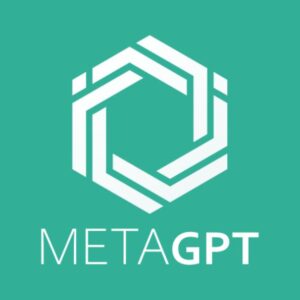MetaGPT, an intriguing AI framework, emerges as a versatile solution for collaborative tasks. At its core, MetaGPT orchestrates a team of AI agents, each equipped with distinct roles, to tackle complex challenges efficiently. This multi-agent synergy is steered by Standardized Operating Procedures (SOPs), ensuring structured workflows.
Its standout feature lies in the diversity of agent roles, permitting a holistic approach. However, a notable limitation is its dependency on pre-trained data, constraining adaptability to evolving scenarios. MetaGPT’s prowess is evident in generating coherent solutions, heralding potential applications across domains. Its user-driven process engenders creativity in code generation, documentation, and team collaboration.
Yet, it’s essential to note that it thrives best in scenarios with well-defined tasks, while complexities demand human intervention. MetaGPT introduces an exciting paradigm for AI-powered collaboration, although its reliance on pre-trained data may limit its versatility in dynamic environments.





























